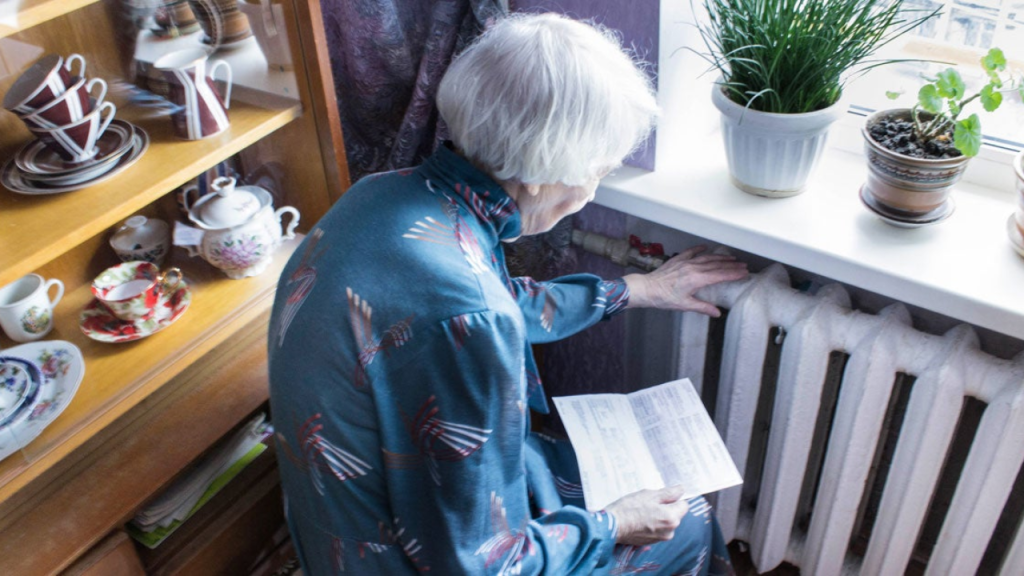Gas and electricity bills are some of the biggest monthly expenses for most households in the United States. This is especially challenging for senior citizens who rely on a fixed income, such as Social Security benefits, to cover their living costs.
With rising energy prices due to inflation, many seniors are finding it difficult to make ends meet. Fortunately, the U.S. Government offers programs that provide financial assistance to help seniors pay for gas and electricity.
In this article, we’ll cover the types of assistance available, how seniors can qualify, and why this support is crucial for those in need.
Types of Financial Assistance for Seniors
The U.S. Government provides two primary programs to help seniors with their energy bills: the Low-Income Home Energy Assistance Program (LIHEAP) and the Weatherization Assistance Program (WAP). Each of these programs serves a slightly different purpose but works toward the same goal—helping seniors reduce their energy costs and stay comfortable in their homes.
1. LIHEAP (Low-Income Home Energy Assistance Program)
LIHEAP is designed to assist low-income families and individuals in paying their heating and cooling bills. This program offers direct financial assistance to cover the costs of electricity, gas, and other forms of energy needed to keep a home livable. Seniors who meet specific income requirements are eligible for this benefit, and it can significantly reduce the burden of monthly energy expenses.
- Who is eligible for LIHEAP? To qualify, seniors must have a monthly income that falls below a certain threshold, which varies by state. The program targets the neediest households, ensuring that help goes to those who are struggling the most to pay their bills.
- How to apply for LIHEAP? Seniors can apply by contacting their local LIHEAP office or by visiting the official LIHEAP website. The application process typically involves providing proof of income and residency, as well as copies of recent energy bills.
2. WAP (Weatherization Assistance Program)
While LIHEAP provides direct financial help, WAP focuses on making homes more energy-efficient. This program helps seniors by improving the energy efficiency of their homes, which reduces the amount of energy needed to heat and cool the space. By upgrading insulation, windows, doors, and heating systems, seniors can see a significant drop in their energy bills over time.
- Who is eligible for WAP? Like LIHEAP, WAP also has income requirements. Seniors with limited incomes are encouraged to apply for assistance, as making their homes more energy-efficient can provide long-term savings on energy bills.
- How to apply for WAP? To apply for WAP, seniors should reach out to their local WAP office. The application process usually involves an energy audit of the home, which determines which upgrades are needed to improve efficiency.
Why Is This Financial Assistance Important?

Rising energy costs are making it harder for seniors on fixed incomes to maintain their homes. The combination of inflation and unpredictable weather conditions has led to higher energy bills across the country. For seniors, who often have to choose between paying for food, medication, or utilities, any form of financial help is a lifeline.
The assistance provided by programs like LIHEAP and WAP ensures that seniors don’t have to make these tough choices. It allows them to stay warm in the winter and cool in the summer without worrying about how they’ll cover their next energy bill. Furthermore, since these programs can be combined with Social Security benefits, seniors can still receive their retirement income while getting additional help with their utilities.
How to Get Started?
If you or someone you know is a senior struggling with energy bills, the first step is to check if you’re eligible for LIHEAP or WAP. These programs are designed to make life easier, especially during times when energy prices are unpredictable.
Applying for assistance is a straightforward process, and the benefits can make a big difference in your monthly budget.
For more information, seniors should contact their local LIHEAP or WAP offices or visit the official government websites for each program. Both programs have resources that can guide you through the application process and answer any questions you may have.
Related News:
- A Big Raise Is Coming in 2025 – How the Cost-of-Living Adjustment Will Impact You?
- Will the $1,500 September 2024 SSI Payment Be Reduced or Delayed?
Summary
Seniors shouldn’t have to choose between keeping their homes comfortable and affording basic necessities. With the help of the U.S. Government’s LIHEAP and WAP programs, seniors can get the financial support they need to cover their gas and electricity bills.
If you or a loved one is struggling to pay for energy costs, take advantage of these programs today to lighten the financial load and enjoy a more comfortable life.
Eliot Pierce is a dedicated writer for ChiefsFocus.com, covering local crime and finance news. With a keen eye for detail and a passion for storytelling, Eliot aims to provide his readers with clear and insightful analysis, helping them navigate the complexities of their financial lives while staying informed about important local events. His commitment to delivering accurate and engaging content makes him a valuable resource for the community.